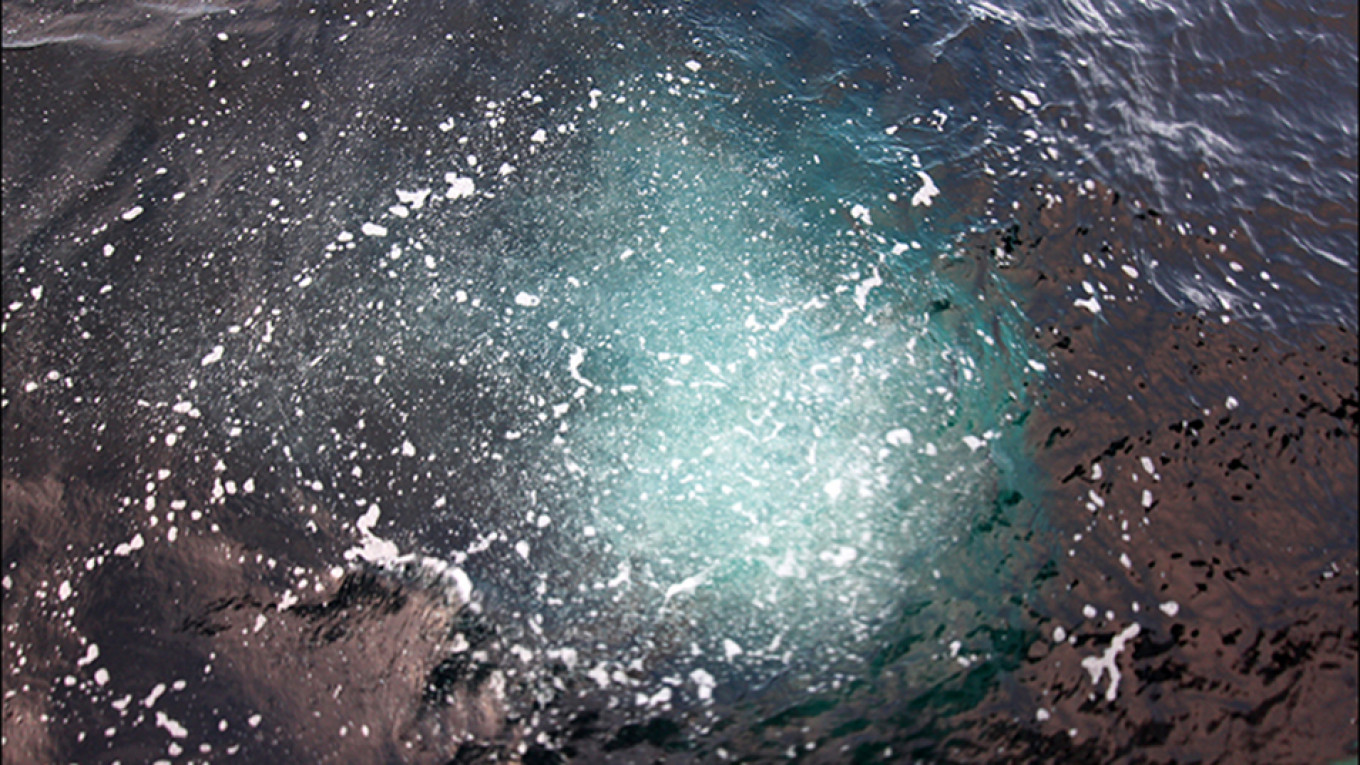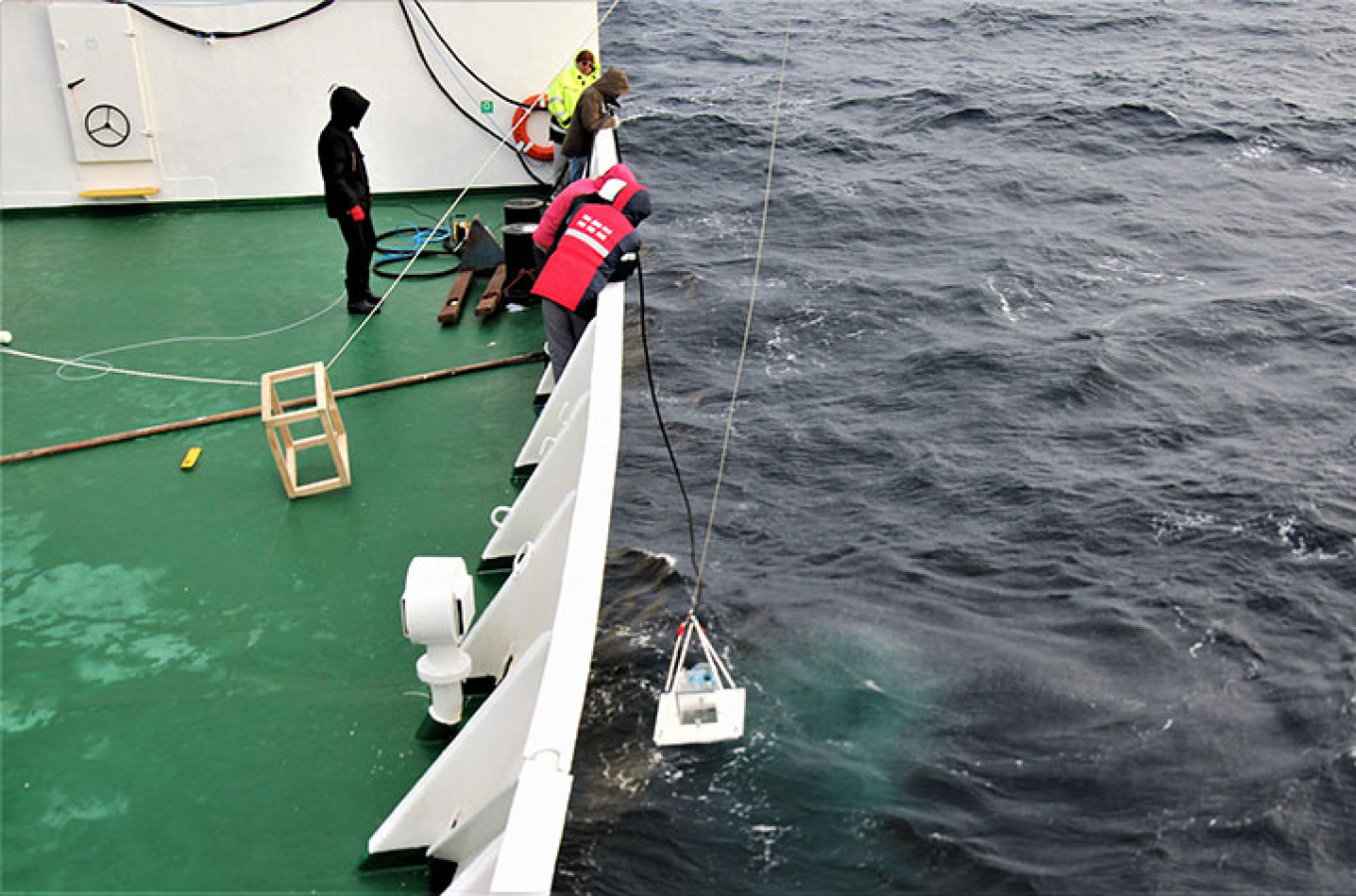A group of Russian scientists has revealed the first pictures of a massive fountain of methane gas bubbling from the sea floor in the eastern Siberian Sea.
During the 35-day expedition that started Sept. 21, the scientific expedition expedition organized by Tomsk Polytechnic University (TPU) noticed a spot of emerald-colored water which turned out to be a record methane gas emission. Concentrations of the greenhouse gas — which can significantly influence the planet’s climate — were found to be up to nine times the global average.
“A new powerful region of massive methane discharge from bottom sediments has been formed in recent years,” the members of the expedition said. “This indicates an abnormally high rate of permafrost degradation.”
The fountain covers an area between 4 and 5 meters. According to the researchers, the methane discharge field’s dimensions have grown several times since 2014 when the survey was last performed.

The water was boiling with methane bubbles so violently that the scientists had to use buckets to collect the gas instead of the special plastic cones normally used for sampling.
The expedition members said that the degradation of the underwater and coastal permafrost that surrounds the Arctic Ocean will lead to massive emissions of methane and carbon dioxide, the two biggest greenhouse gases that contribute to climate change.

During the expedition, researchers also studied the accumulation of various types of microplastics, one of the most dangerous pollutants for living organisms.
